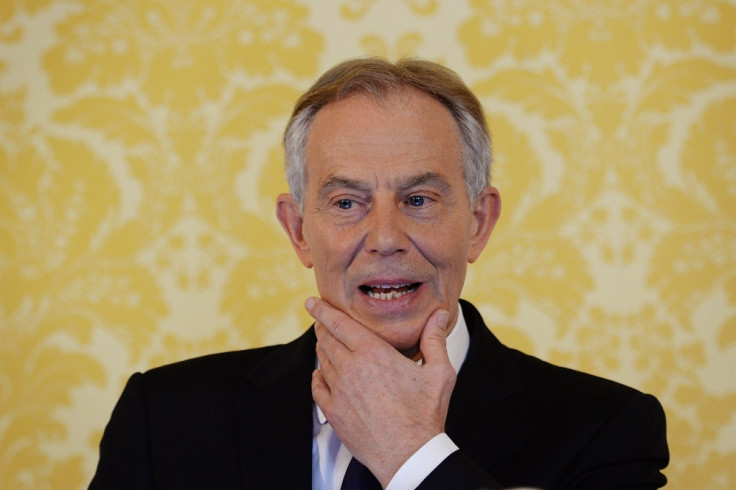Attempt to prosecute Tony Blair over Iraq War blocked by High Court
Former chief of staff for the Iraqi army hoped former PM would face charges of "aggression".
The High Court has blocked an attempt by an Iraqi army chief to have Tony Blair's immunity from prosecution for his role in the Iraq War overturned.
Former chief of staff for the Iraqi army, Gen Abdul-Wahid Shannan ar-Ribat, had hoped to bring a private prosecution forward against the former Labour prime minister for the crime of "aggression".
Blair currently has immunity from criminal charges over the 2003 war after a 2016 court ruling said attempting to bring any prosecution would involve revealing details currently kept under the Official Secrets Act.
Lord Chief Justice Thomas of Cwmgiedd – the most senior judge in England and Wales – along with justice Duncan Ouseley have now blocked ar-Ribat's attempts to remove the immunity and prosecute Blair,
ruling there was "no prospect" of it succeeding.
Lawyers for Jeremy Wright, the current attorney general who sought to uphold the immunity, argued that while the crime of aggression is recognised by international law, there is no such offence in English law.
As well as Blair, the former Iraqi army chief of staff was hoping to bring the same aggression charges against former foreign secretary Jack Straw and former attorney general Lord Goldsmith
The case was brought forward in the wake of the release of the much-delayed Chilcot Report.
The 2.6 million word review heavily criticised Blair's role in starting the controversial war over the assumption that Saddam Hussein had weapons of mass destruction (WMD) at his disposal.
Among some of the key findings of the report was Chilcot declaring that Blair and his allies presented assertions that Hussein had WMDs "with a certainty that was not justified" and his arguments for going to war were based on "flawed intelligence and assessments" that "were not challenged [and] should have been".
Speaking in the wake of the publication of the report, Blair said he express "more sorrow, regret and apology than you may ever know or can believe" after admitting the intelligence assessment leading up to the decision to go to war - which claimed the lives of 187 British soldiers and hundreds of thousands of Iraqis - was wrong.
He added: "The decision to go to war in Iraq and remove Saddam Hussein from power in a coalition of over 40 countries led by the USA, was the hardest, most momentous, most agonising decision I took in 10 years as British prime minister.
"For that decision, I accept full responsibility, without exception and without excuse. I recognise the division felt by many in our country over the war and in particular I feel deeply and sincerely – in a way that no words can properly convey – the grief and suffering of those who lost ones they loved in Iraq, whether the members of our armed forces, the armed forces of other nations, or Iraqis."

© Copyright IBTimes 2025. All rights reserved.






















